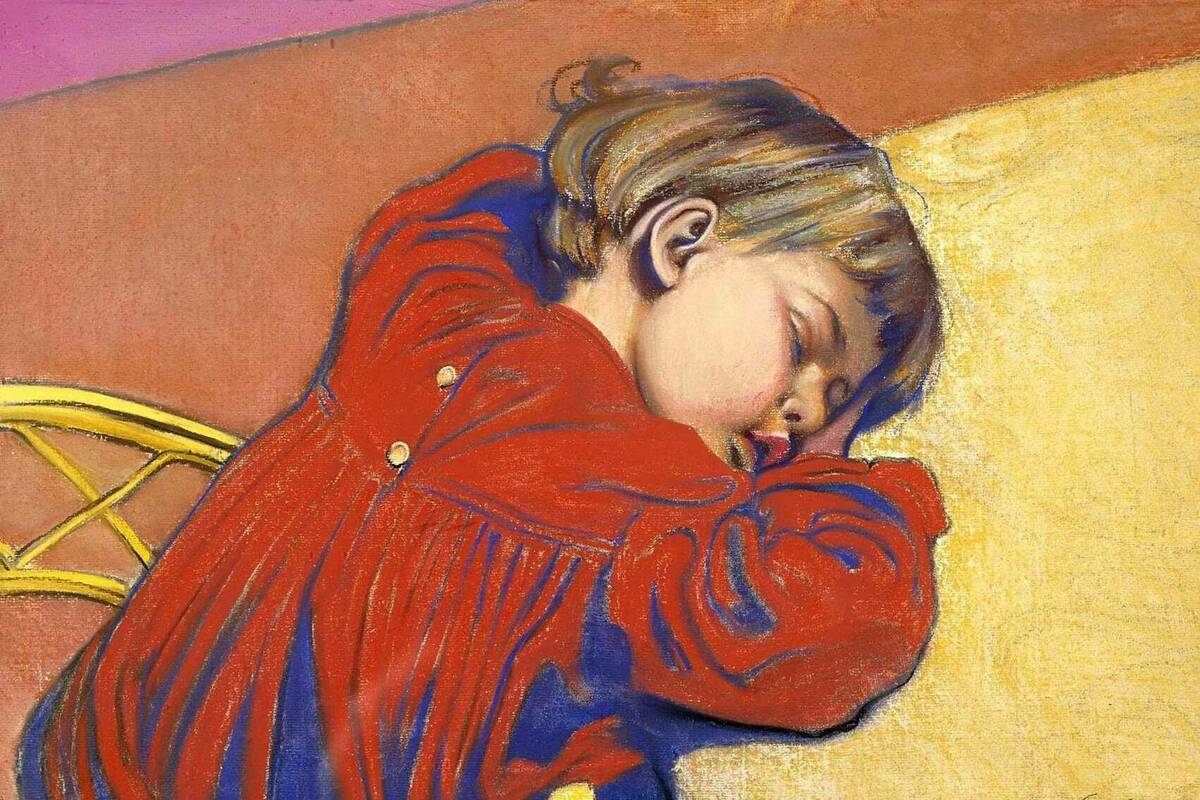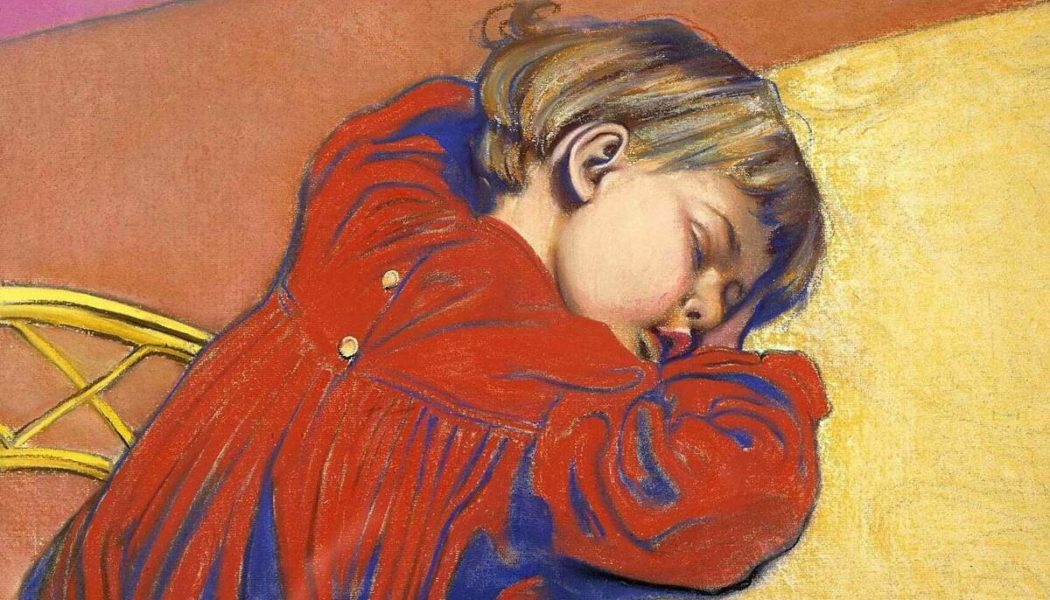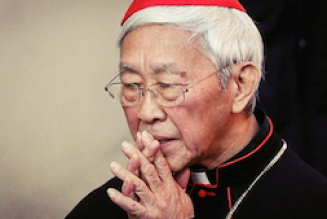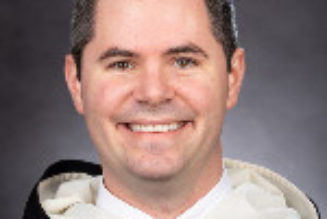
Is human procreation a good or is barrenness a blessing? Genesis tells the first couple to be fruitful and multiply (Gen 1:28). But advocates for Zero Population Growth hold that we ought to have two or fewer children. Are children a blessing for marriage? Or do couples need children like hummingbirds need laptops? Is having children a good, bad, or indifferent sort of action? The thesis of this essay is that procreation is a good, indeed a great good. I argue for this proposition from the idea of personal vocation to love and its connection to suffering, from Platonic understandings of eros, from Aristotelian conceptions of friendship, and from Jesus’s teachings on salvation.
The Vocation to Love and the Willingness to Suffer
God’s plan, in one sense, is the same for all of us. The universal vocation of every human being from Adam and Eve to the most recently procreated human being is the shared call to know, to love, and to serve God and other people. In fulfilling this vocation, we find happiness.
In a second sense, God’s plan involves different states in life. The vocation as a state in life varies from person to person. Some are called to know, love, and serve God and other people as priests or as religious sisters or brothers. Some are called to know, love, and serve as husband and wife. Marriage is a true vocation. Some are called to know, love, and serve as single people, and this is their true vocation.
Finally, there is a third sense of vocation, personal vocation. A particular man may be called to serve as a Jesuit priest teaching philosophy at Boston College. A particular woman may be called to serve as a Carmelite sister taking care of the infirm elderly at Marycrest Manor. And a particular man may be called to marry Jennifer Turner and to be the father of their children. A personal vocation is utterly unique to that particular individual and to no other. Just as Mary alone was called to be the mother of Jesus, and Joseph alone was called to be the husband of Mary, so each of us is called to some task-specific to us alone. As St. John Henry Cardinal Newman put it,
I am created to do something or to be something for which no one else is created . . . God has created me to do Him some definite service; He has committed some work to me which He has not committed to another. I have my mission . . . Somehow I am necessary for His purposes, as necessary in my place as an Archangel in his . . . He has not created me for naught. I shall do good, I shall do His work; I shall be an angel of peace, a preacher of truth in my own place.
A personal vocation is to be husband or wife to this spouse, to be father or mother to this child, to respond to the specific needs, weaknesses, desires, proclivities, and strengths of those whom God has placed in our lives. The universal vocation of every human person is the vocation to love, and this love is to be carried out by each individual in a specific way in his or her unique and personal circumstances. God has made us for love.
God’s plan helps us to find an answer to one of the most important questions a person can ask, “What makes for a good life?” We find an interesting convergence of philosophical, theological, and psychological insight on this question. Though they disagreed about many matters, Aristotle (Nicomachean Ethics) and Epicurus (The Art of Happiness) agreed that without loving friendships no human being could be happy. In the theological realm, Augustine of Hippo (Homilies on the Gospel of St John 7.8) summarized the teaching of Jesus for having a blessed life: “Love, and do what you will” (Dilige, et fac quod vis). In his Summa theologiae, Thomas Aquinas, like countless Christian theologians before and after, linked loving rightly with living happily. Contemporary psychology also reinforces the centrality of love for human flourishing. The lead researcher of the Harvard Study of Human Development George Vaillant said, “Happiness is love, full stop.” Likewise, the founder of positive psychology Martin Seligman emphasized loving relationships as the single most important element of his understanding of human flourishing.
But if living a good life cannot be had without loving, Sigmund Freud was also surely right in saying, “We are never so defenseless against suffering as when we love.” C. S. Lewis, though a radical critic of Freud, agreed with him about this matter. Lewis wrote,
To love at all is to be vulnerable. Love anything and your heart will be wrung and possibly broken. If you want to make sure of keeping it intact you must give it to no one, not even an animal. Wrap it carefully round with hobbies and little luxuries; avoid all entanglements. Lock it up safe in the casket or coffin of your selfishness. But in that casket, safe, dark, motionless, airless, it will change. It will not be broken; it will become unbreakable, impenetrable, irredeemable. The alternative to tragedy, or at least to risk of tragedy, is damnation. The only place outside Heaven where you can be perfectly safe from all the dangers and perturbations of love is Hell.
Not only does loving expose a person to suffering, but suffering for someone can augment love. The “IKEA effect” is the psychological finding that people value their IKEA furniture (which they had to toil to construct) more than furniture that did not require assembly. We love what we have worked for, toiled over, and suffered for. If these insights are correct, suffering and enjoying a good human life are not set in zero-sum opposition. Through their connection in love, to live well and to suffer are not mutually exclusive but mutually implicative.
We can perhaps better see the connection between flourishing and suffering by considering the nature of love. In his book One Body, Alexander Pruss proposed that love involves willing the good of the other person as other, appreciating the good of the one who is loved, and seeking unity with the one who is loved. Love’s first characteristic, then, is to will the good of other persons as other, to desire the good for them for their own sake. Thus love of enemies is a paradigm case of authentic love, for in loving one’s enemies there is no reasonable expectation that they will give us something back in return.
The second characteristic of love, according to Pruss, is appreciation. Willing the good of the other as other is not sufficient for the fullness of love. Love involves appreciation of the reality of what is good about an individual. If we “do good” for others but hold them in contempt as if they were human garbage, we fail to love them. To love people is to choose an intentional focus in appraising them. “Whatever is true, whatever is honorable, whatever is just, whatever is pure, whatever is lovely, whatever is gracious, if there is any excellence and if there is anything worthy of praise, think about these things” (Phil. 4:8). This focus is compatible with, indeed demands, a responsiveness to reality. I am not really loving my mother if I appreciate her as Prince George of England.
Love’s appreciation of others is not blindness to their faults, failings, and foibles but is mindful that everyone is more than their faults, failings, and foibles. As Alexander Solzhenitsyn wrote in his Gulag Archipelago,
The line separating good and evil passes not through states, nor between classes, nor between political parties either—but right through every human heart—and through all human hearts. This line shifts. Inside us, it oscillates with the years. And even within hearts overwhelmed by evil, one small bridgehead of good is retained.
In the natural law tradition, this inherent bridgehead of good is manifested in the first principle of practical reason always operative in each agent, “Good is to be done and pursued and evil avoided.” Every human person on earth is a shifting mixture of the good and the bad, in both moral and nonmoral terms. We can choose to focus on what is bad. But to love someone is to choose to focus on what is good.
The third characteristic of love, according to Pruss, is that love seeks unity with the beloved. Erotic love, friendship love, parental love, and other types of love differ, in part, by virtue of the kinds of unity they seek. Erotic lovers desire sexual union. Loving friends desire to share activities together, like walking, chatting, and working. Loving parents desire to raise their children and watch them in their activities. Lovers of God desire to be unified with the Lord in prayer, service, and theology.
If we understand love in this threefold way, and if love is needed for a good human life, then we have reason to hold that the good life for a human being will always involve suffering. First, to will the good for another person often involves a sacrificial cost to the one who so chooses. To care for the sick, to bear wrongs patiently, and to change for the beloved involves sacrifice. All these acts are sacrificial. Even the most virtuous among us surely finds the demands of willing the good for others as personally costly in time and in effort. Moreover, trying to help others also often leads to disappointment. If we help a student with learning disabilities study for the test, frustration abounds even further if the result is the usual F despite our best efforts. To try to help someone is to risk, and often to experience, the failure to actually help someone. In such cases, our time and effort may well have been put to better use, so this adds to a sense of frustration.
Second, the fragility of human goodness in all dimensions makes the one who appreciates the good of the beloved vulnerable to loss and disappointment. The goodness of health fades into decrepitude, intelligence into dementia, and human life ends always in death. Human beauty, of body or soul, does not endure; as the Bard noted, “Every fair from fair sometime declines, / By chance or nature’s changing course untrimm’d.” Finally, suffering arises because our unity with others makes us suffer in compassion when they suffer. When we love our friend, we suffer when our friend is sad, sick, or silenced. Since virtually everyone experiences suffering, our unity with those we love leads us to suffer when they suffer.
In sum, human flourishing and human suffering are linked by love that seeks at some personal cost to give to the beloved, that appreciates the fragile good of the beloved, and that is unified with the beloved in times of sorrow. If we are to flourish as human beings we need to will the good of others, appreciate the good of others, and seek unity with others. But if we will the good of others, we will often be frustrated at the lack of success in actually bringing about the good. If we appreciate the good of others, we will often suffer when their good is undermined or corrupted over time. And if we seek unity with others, we will have to endure the compassionate sorrow when they (as they surely will) endure suffering of their own.
We find this mutual implication of suffering and flourishing vividly in the lived reality of married love. Even those in happy marriages can appreciate the grain of truth in the joke “First, the engagement ring, then, the wedding ring, and then, the suffering.” Willing the good of one’s spouse often involves sacrifice, sometimes heroic sacrifice. Married love appreciates the reality of the spouse, but that reality can disappoint. What makes married love distinctive is not so much willing the good or appreciating the other as the kind of unity that is promised in married love.
In a Catholic marriage, the couple is asked whether they have come to enter into marriage freely and without coercion, whether they will love each other until death does them part, and whether they will accept children and bring them up according to the law of Christ and his Church. Unless the couple promises a love that is free, faithful, and fruitful, the couple is not free to marry in the Catholic Church. This unity as husband and wife, for as long as they both shall live, can cause suffering. As J. R. R. Tolkien observed in a letter to his son, “Nearly all marriages, even happy ones, are mistakes: in the sense that almost certainly (in a more perfect world, or even with a little more care in this very imperfect one) both partners might be found more suitable mates. But the real soul-mate is the one you are actually married to.” It is important to remember, lest we have an unbalanced assessment, that every alternative to marriage also involves suffering. The single life can be a lonely life without spouse and children to accompany us. Serial monogamy lacks the depth of commitment for the future and the long history of shared joys and struggles. For most people, marriage, despite its difficulties, characteristically leads to greater flourishing in health, in wealth, and in self-reported well-being than remaining single or divorcing.
How Do Children Relate to Marital Flourishing?
Some people view the procreation and education of children as at best one option among many for married couples and at worst a negative drain on the well-being of the couple. A hedonistic philosophy of life regards marriage with suspicion and children with even greater suspicion. Human flourishing, according to this view, involves lots of sex, drugs, drinking, and lack of suffering. This view of life is represented in the Gospel of Luke by the rich man who advises himself, “Rest. Eat. Drink. Be merry” (Luke 12:19). Here contraception is not just an option but an obligation.
Perhaps no one more notoriously embodied this philosophy than Playboy magazine founder Hugh Hefner. He celebrated abortion, extramarital sex, contraception, and self-satisfaction. Yet even Hugh Hefner eventually realized that what he was looking for could not be found in sexual escapades with casual partners. At sixty-three, Hefner married and fathered two children in rapid succession. The New York Times reported that Hefner said:
“Having this marriage now and these children, seeing toys in the mansion, I get teary-eyed.” Indeed, his eyes fill and he presses his fingers to his mouth punishingly hard. “I spent so much of my life looking for love in all the wrong places,” he says, wiping his eyes. Though it should sound trite, it doesn’t. The weariness in his voice and the weight in his face suggest the toll of decades of grueling work, of nursing the impossible image of himself as the life of every party.
The life of the party is now dead, but we can learn from Hefner’s missteps. Despite his love for his children, expressed in the passage above, his decades of habituation in lack of commitment led to his marriage falling apart before a decade was done. The goods of marriage, like all human goods, are fragile. Given the failure of Hugh Hefner’s way of pursuing happiness, as seen eventually even by Hefner himself, let’s consider a radically different answer to the question, How do children relate to marital flourishing?
Classic Christian belief emphasizes, in accordance with its Jewish roots, the goodness of having children. According to the Second Vatican Council, “Marriage and conjugal love are by their nature ordained toward the begetting and educating of children. Children are really the supreme gift of marriage and contribute very substantially to the welfare of their parents.” Children contribute to the flourishing of their parents in three dimensions: by realizing the goal of erotic love, by providing an opportunity for establishing or strengthening a friendship of virtue, and by helping the parents to preserve and strengthen the gift of salvation.
Realizing Erotic Love
One of the most memorable and influential views of erotic love is proposed in Plato’s Symposium. In the Symposium, the Platonic Aristophanes tells a story about the origins of erotic love. Once, human beings had four arms, four legs, and two faces. We were like conjoined twins joined back to back. We were so powerful, in our original creation, that we rebelled against the gods. Our punishment for this unsuccessful rebellion was to be split in two, in order to weaken us. This punishment both gave us the form we now have (two arms, two legs, one face) and also gave rise to erotic love, the desire to be as united as possible with the beloved.
Modern ways of speaking about love echo the Platonic Aristophanes. In a 1996 film starring Tom Cruise, the character Jerry Maguire says to his beloved, “You complete me.” Couples speak of “my better half” and “my other half.” When a relationship fails, we “break up.” Erotic love might be defined as seeking to be as united as possible with the beloved, especially in a bodily, sexual way.
To be as united as possible involves being united with the beloved in terms of exclusivity as well as permanence. Love songs speak of “you alone” and “forever.” When in the madness of erotic love, one feels as if love will last forever and one wishes for this love to last forever. The beloved of erotic love is utterly irreplaceable, a singularity that cannot be replicated. Moreover, erotic love is a love of the whole person, rather than just love of the other as (potential) sexual partner. If the Platonic Aristophanes is right in his conception of erotic love, it makes sense that erotic love prompts couples to vow to be husband and wife in good times and in bad, in sickness and in health, until death do us part. Erotic love is the desire to be together forever.
Procreation is a way of realizing the goals of erotic love, to be together forever, united to this one alone until death. Erotic love aims for unity, and every child is a living and lasting sign of the unity that once existed between the mother and the father. Erotic love seeks exclusivity and eternity. The one love says to the beloved, “you alone” and “forever.” Every child unites the mother to the child’s father alone, and the father to the child’s mother alone. Every child unites mother and father together forever. Normally, the unity is not merely physical, as if it were a mere matter of shared DNA, but emotional and psychological. Loving parents, whatever their differences, share in having goodwill toward, appreciation of, and desired unity with their children. Even after divorce, many couples still share a love for and devotion to their children.
Enhancing Friendship
In The Seven Principles of Making Marriage Work, the psychologist John Gottman, working with empirical data arrived at through observing thousands of married couples in his University of Washington “love lab,” wrote that the determining factor in whether a wife or husband feels satisfied with the sex, romance, and passion of their relationship is the quality of the couple’s friendship. Friendship could be defined in terms of mutual goodwill, shared activity, and shared emotional life. Having children together fosters marital friendship at least insofar as shared children give the parents an extra reason to have goodwill for each other. Divorce is the death of a marriage, the exact opposite of marital friendship. Having children together is associated with a lesser likelihood of divorce. In his book The Evolution of Desire, psychologist David Bess made a similar finding:
According to a United Nations study of millions of people in forty-five societies, 39 percent of divorces occur when there are no children, 26 percent when there is only a single child, 19 percent where there are two, and less than 3 percent when there are four or more.
If I have children in my marriage, my spouse is not just my wife but also the mother of my children. In virtue of loving the children, I have an extra reason for loving her. When difficulties arise, as they inevitably do, children provide an extra motivation to make things work. Couples who know that their kids will suffer if their marriage falls apart have extra reasons to seek reconciliation. The activity of raising children, as well as accompanying them as adults, gives the couple a shared emotional life. Mother and father are united in joy at first Holy Communion, graduation from high school, celebration of a wedding, or the birth of a grandchild. Mother and father are united in sorrow at schoolyard bullying, high school hazing, an arrest of a child for drunk driving, or the unemployment of an adult son or daughter.
A child inevitably brings to his or her parents times of frustration and desolation and at other times elation and exhilaration. The roller-coaster ride of parenthood can go from panic, rage, and stress to serenity, tranquility, and exaltation and then back again. Whatever their emotional ups and downs, children benefit parents by providing them resources for a shared emotional life, enhancing their friendship. On the supposition that both the mother and father care about the well-being of their shared child (a defeasible presumption but one that characteristically is the case), the parents are united in joy when the child is flourishing, united in sorrow when the child is not, and united in hope when the child’s well-being is yet to be determined.
In book 8 of his Nicomachean Ethics, Aristotle famously distinguished between friendships of pleasure, utility, and virtue. We love in friends what is pleasurable, useful, or excellent, and so from a focus on these three things different kinds of friendships arise. Children do not aid a friendship of pleasure, that which is based on having fun and hedonistic experiences; friendships of pleasure, however, tend not to last anyway. Children also do not much aid a friendship of utility, since children usually need our help rather than offer it. But a friendship of utility is, by its nature, a second-rate kind of friendship. In a friendship of utility, I don’t really care about my friend as much as the benefits that the friend gives to me. But what about a friendship of virtue? In this friendship, friends care about each other not simply because they give one another pleasure or utility but because of the excellence of the other person.
How do we gain virtue? At least for the acquired virtues, we gain an excellent character by repeatedly doing excellent acts. When a couple has a child, that vulnerable baby needs round-the-clock help. In performing caring, gentle, kind, and loving acts for their baby, their toddler, their grade-schooler, their teenager, and their young adult child, parents grow into more caring, gentle, kind, and loving people. Inasmuch as the couple has more children, they have further opportunity for growth in virtue. Virtue grows through virtuous action. The more opportunities one has for virtuous action the more opportunities one has to grow virtuous. If one has only one child, then one has only one opportunity to help one’s offspring through the terrible twos, through riding a bike, through learning to read, and so on. But with each additional child, there are additional opportunities to serve.
Of course, having children is neither a necessary nor a sufficient condition for becoming virtuous. Many of the greatest saints of the Christian tradition (St. Francis of Assisi and Mother Teresa spring to mind) had no children. Nevertheless, parents with children imitate in their own modest way the daily and arduous labors of more famous saints who served the vulnerable in their midst. There is Christian virtue in parents caring lovingly for the needs of their own children. Parents who lovingly care for their physically or mentally disabled children exhibit this virtue in heroic ways. Inasmuch as these parents grow in virtue, they establish or strengthen the basis for a friendship of virtue.
Having Children and Heavenly Happiness
Having children helps a couple in their journey toward heaven, I think, in part by providing an opportunity for deepening faith. Faith is a gift that grows when exercised and atrophies, or even dies, when not exercised. Responsible parenthood, by which I mean a prudent generosity in the transmission of human life, can be an act of faith in God’s guidance of the Church and God’s providential care for each family. St. John Henry Cardinal Newman wrote:
Let everyone who hears me ask himself the question, what stake has he in the truth of Christ’s promise? How would he be a whit the worse off, supposing (which is impossible), but, supposing it to fail? . . . What have we ventured? I really fear, when we come to examine, it will be found that there is nothing we resolve, nothing we do, nothing we do not do, nothing we avoid, nothing we choose, nothing we give up, nothing we pursue, which we should not resolve, and do, and not do, and avoid, and choose, and give up, and pursue, if Christ had not died, and heaven were not promised us.
Those who accept and live the call to responsible parenthood can say that they ventured living in accordance with what they believed God wanted from them. How many people with three, five, seven, or more children would have had only one or two but for their venture of faith? I know I am one.
If a couple follows the Church’s teaching, it is likely that the couple will have a larger family than they would have had if they had not followed the Church’s teaching. The reason is fairly simple. If a couple is not using contraception but rather is using fertility awareness methods or Natural Family Planning (NFP) to delay births, then in each woman’s cycle a decision must be made to abstain from sexual intercourse during the fertile time of the cycle, during which time she is characteristically more interested in having sex. So, at each cycle, the urges of nature prompt a couple to reconsider their decision to postpone having a child. If the couple has a healthy sex drive, the couple has an ongoing incentive for making love rather than periodically abstaining. Of course, many couples forgo entirely using NFP, as well as contraceptive methods, so for them (again assuming normal fertility and sex drive) it is likely that their family size will be greater than the contemporary average.
If a couple has a larger family, they will almost certainly have a larger share of the emotional highs and lows that accompany having any children. At least for good parents, having children adds something radically new to one’s life, an unconditional commitment of love to this particular person until death. So each child a couple has reaffirms in a new way the vows made in marriage: to love in good times and in bad, in sickness and in health, until death. Although no explicit vow is made to the child, good parents have an unbreakable commitment to each child that reflects the unconditional commitment of the marriage vow, in its turn a visible sign of the invisible reality of God’s irrevocable love for each of us.
When teenage and adult children cause parents great suffering, their parents may be tempted to waver in their duty to love their children unconditionally. For example, it can cause immense pain and sadness to raise a child in the practice of faith only to see the child turn away from the practice of faith. Elie Wiesel’s son, Elisha Wiesel, speaks of his Jewish experience on this point:
There is a Chasidic story of the Baal Shem Tov, who was once approached by a chasid, bemoaning how far his son had strayed. The rebbe’s surprising answer: “Love your son more” . . . My father must have heard this story because he lived it. He believed in me even when I did not believe in myself. He believed in me as I set out on a journey that would take me very far from Judaism and from him. And he believed in me even as I shouted at him that I wanted nothing to do with his religion, that I wanted to be an X factor in every equation he and my mother had used to project my life, that I would be an atheist or a Buddhist, anything but what he told me I had to be. My father kept telling me to be a good student, a good son, a good Jew. But he said it more quietly.
After his father’s death, the son felt the presence, love, and guidance of his father in ways even more powerful than when his father was alive. Elie Wiesel must have surely been tempted to stop loving his son, but his fidelity—with God’s help—paid off in a son who is guided more strongly by his father’s wisdom now than when the father was alive.
Christian spouses can help other people to be open to the gift of faith. In their very mode of living, Christian spouses with larger families can provide testimony by forgoing the vacations and other material perks enjoyed by the typical “two income-two child” family. A martyr is a “witness,” a public sign to others of the Kingdom. A priest or nun in distinctive religious garb silently prompts a question in those who see them, “What if they are right about the importance of God? They seem awfully committed to it.” A large family communicates a similar message to the world. Life is not primarily about enjoying bodily pleasure, increasing riches, or possessing power
Divine Commandments
Jesus taught that the greatest commandment is “Thou shalt love the Lord thy God with all thy heart, and with all thy soul, and with all thy mind” (Matt 22:37). Love and knowledge are connected, inasmuch as we cannot love what we do not know, and the more we know about the goodness of the one we love, the more we can appreciate the one we love. We are helped to heaven by deepening our knowledge of God.
According to Thomas Aquinas, one path to deeper knowledge of God is apophatic theology, the way of remotion by which we remove misunderstandings about God. Apophatic theology proceeds by denial of characteristics to God. We have a less inaccurate understanding of God when we clear away misconceptions about God. Negative theology is a way of denial in which various terms are said not to apply to God. For example, God is not composed of parts. God has no beginning. God is not a body. These statements reflect the way of remotion, negative theology.
All parents come to realize quickly that their parenthood is not like the parenthood of God. God is not impatient. God is not overwhelmed. God is not at a complete loss about what to do. In coming to know who God is not, in coming to see ever more clearly that we are not God, parents come closer to the true God. We parents come to know in an emotional way that we are not God. To have a deep sense of nondivine status is to open oneself up in new ways to relying on God.
Indeed, children teach parents humility. As young children, we know we are not God. Someone else determines when we get out of bed, what we wear, what we eat, and where we go. When we become adults, it is easier to get the feeling that we are the ultimate arbiters of our universe. As adults, we find it easier to fall into the illusion that we are in complete control. We decide when we get out of bed, what we wear, what we eat, and where we go. We might even come to believe that one has “the right to define one’s own concept of existence, of meaning, of the universe, and of the mystery of human life.”
Children shatter the illusion that we are God. In his book Existentialism and Human Emotion, the philosopher Jean-Paul Sartre held that all human beings have the “desire to be God.” This desire to be God is thwarted by children. We do not choose their looks, their native intelligence, their athletic ability, their temperament as introverted or extroverted, their slowness or rapidity to react. We cannot, despite efforts to discipline them, make our children as we might like. We are also vulnerable in our children. Even if we are healthy, their sicknesses afflict us. For parents the good of the child is constitutive of their own good, so when this good is undermined the parents are also undermined. The social and educational traumas of children impinge upon parents regardless of the parents’ social class or educational achievement.
Children make the parents feel helplessness. When our children suffer, we parents suffer because we are the ones who are supposed to care and protect but we cannot do it. This can open the parents to call on God, whose care and protection can ultimately save even the most hopeless situation. According to Thomas Aquinas, another path to deeper knowledge of God is analogy, an understanding of how God is not exactly like but nevertheless similar to created things. For example, in understanding something about human intelligence, we can gain some understanding into the cause of human intelligence. Parents are like God in that they cooperate in giving life. Aside from God, parents have the most power over the lives of their young children, determining virtually every aspect of their lives.
In experiencing the powerful, unconditional love that parents have for children, parents can come to realize, in some limited sense, something more about the powerful, unconditional love of God for them and for their children. In understanding the fragility of their children, parents can better understand their own fragility and dependence upon God their Heavenly Father. In seeing the weakness, sinfulness, and dependency of their own children, parents can become awakened to their own weakness, sinfulness and dependency. This opens up the possibility of greater reliance on God. When Jesus was asked by the rich young man about how to get to heaven, our Lord replied, “If you wish to enter into life, keep the commandments” (Matt 19:17). Jesus specifically mentioned the fourth commandment, “Honor your father and mother” (Matt 19:19). Having children helps parents to fulfill this commandment.
It is easy to be critical of one’s own parents. They fail at this and at that. But when people have children of their own, they realize how very difficult it is to be a good parent. The stresses and strains of raising children tax our patience and our gentleness and can overwhelm our best intentions. When we have children of our own, we realize that despite our great love for our kids, we often fail them. As we realize our own imperfections, it becomes easier to forgive the imperfections of our own parents. If we, despite our great love for our own children, nevertheless still fail on occasion to give our children what they want or need, then maybe the failures of our own parents were not done because of a lack of love. In coming to understand the challenges of parenthood, we can better understand the challenges that our own parents went through with us. This deeper understanding can lead to deeper love for our parents and so a greater ease in honoring them.
Moreover, in having children, we can come to a deeper understanding of what our own parents gave to us. We can appreciate the enormous time, energy, and efforts it takes to raise children. When we have babies, we realize how much our parents did for us as infants. When we have teenagers, we can perhaps better recall the difficulties we gave our parents as teenagers. The suffering of raising children can lead to greater gratitude to our own parents for having suffered for us. When we are grateful to our own parents, it is easier to give them the honor that God commands us to give.
In the Gospel of Matthew, Christ talks about the Final Judgment. In separating those who are entering heaven from those going to hell, Jesus says to those entering heaven, “I was hungry and you gave me food, I was thirsty and you gave me drink, a stranger and you welcomed me, naked and you clothed me, ill and you cared for me” (Matt 25:35–36). I remember hearing this passage in church as a child and thinking, “Oh no. Everybody is going to go to hell. After all, who does this? Mother Teresa and her sisters in the Missionaries of Charity will be fine, but everyone else is in big trouble.”
Only after I had children did I understanding this teaching of Jesus in a new way. After all, every good mother and every good father do these things on a daily basis. The baby is hungry, and good parents give the child something to eat. The child is thirsty, and good mothers and fathers give their child something to drink. Their son or daughter is naked, and they clothe him or her. How many times do parents bring their sick children to the doctor or hold their hand when they have a fever? And every child comes into the family as a stranger, but good parents welcome the child anyway. So perhaps, on the Judgment Day, the good Lord, having watched our daily toils as mothers and fathers, will say to us, “Come, you who are blessed by my Father. Inherit the kingdom prepared for you from the foundation of the world” (Matt 25:34).
For good reasons then did the Second Vatican Council echo classic Christian teaching, “Marriage and conjugal love are by their nature ordained toward the begetting and educating of children. Children are really the supreme gift of marriage and contribute very substantially to the welfare of their parents.” The Church’s message is that having children helps their parents, and these reflections are an attempt to consider various ways in which children help their parents. Specifically, I suggested that having children is one way of realizing the universal call from God to every individual to love. This love, of its very nature, leads to suffering and sacrifice. Children are a gift to marriage and help their parents by (1) realizing the goals of erotic love, (2) providing opportunities for a friendship of virtue, and (3) helping their parents to get to heaven.
EDITORIAL NOTE: This essay is a slightly modified excerpt from Disputes in Bioethics. It is part of an ongoing collaboration with the University of Notre Dame Press. You can read our excerpts from this collaboration here. All rights reserved.
A version of this essay originally appeared in “Married Love, God’s Plan, and the Good of Children” found in Humanae Vitae: 50 Years Later, published by CUA Press (our sincere thanks go out to their permission department).
Join Our Telegram Group : Salvation & Prosperity








